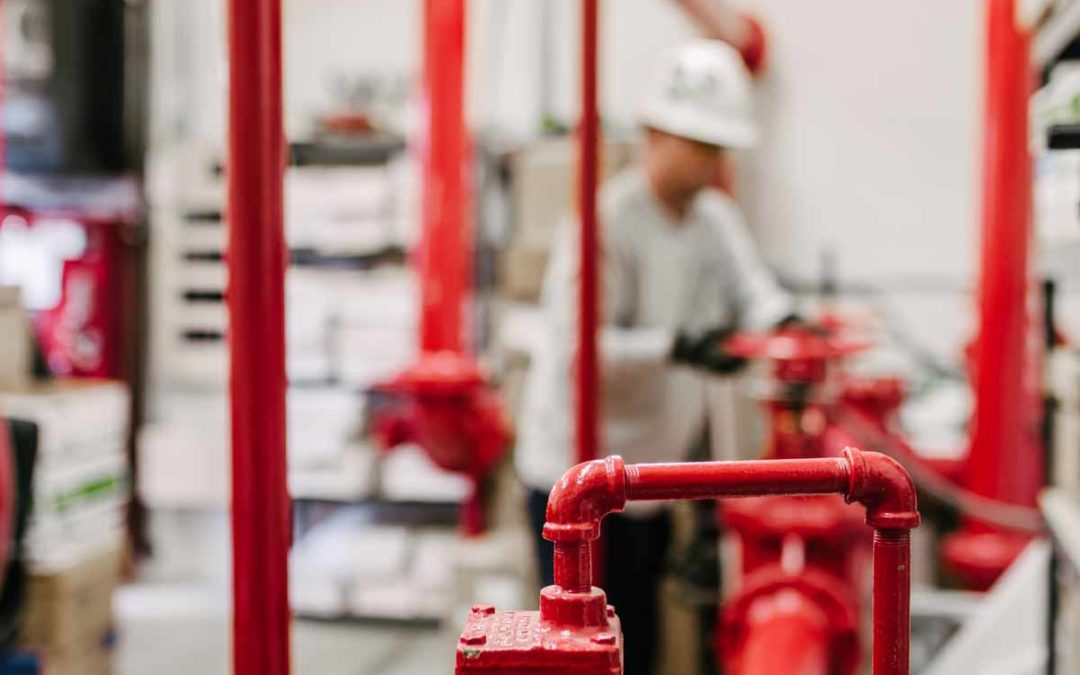Poor maintenance of fire protection systems can result in serious property losses and a threat to human life. Studies show that regular maintenance can reduce the risk of failure by up to 70%. Despite this, many property managers ignore this problem, leading to failures and inefficiencies in fire protection systems. This article will show what risks are associated with a lack of sprinkler maintenance, what are the most common failures of fire protection systems, and how to ensure the longevity and reliability of these systems by maintaining sprinkler systems.
How does lack of maintenance affect the effectiveness of sprinkler systems?
Lack of sprinkler maintenance is one of the main factors limiting the effectiveness of fire protection systems. System components such as sprinkler sprinklers are particularly susceptible to damage resulting from dirt build-up, corrosion or improper calibration. Below are the most common consequences of lack of maintenance.
1. Loss of extinguishing efficiency
Neglecting maintenance means that sprinklers may not provide the proper amount of water at the proper pressure in the event of a fire, significantly reducing their effectiveness.
2. Mechanical failure
Dirt and rust block water flow, leading to complete system failure. In extreme cases, damage can affect the system’s ability to detect and extinguish fire.
3. Increased operating costs
Regular repairs to damage that could have been avoided through regular servicing generate significant expenses.
For these reasons, building owners must systematically service fire protection systems to ensure they are fully operational in crisis situations.

Simple steps to ensure your system has a long and efficient life
The longevity and reliability of fire protection systems depend on a comprehensive approach to their maintenance. To avoid problems, the following steps should be taken:
1. Planning of technical inspections
Systematic inspection of the installation allows for early detection of faults. The maintenance schedule should be adapted to the intensity of use of the building.
2. Collaboration with professionals
Experts offering fire protection system service have the knowledge and tools necessary to properly operate the system. Regular inspections minimize the risk of unexpected failures.
3. Constant water flow control
Testing water pressure and flow in a system ensures that the system will be fully functional in the event of a fire.
4. Maintaining service records
Accurate records of maintenance work performed enable monitoring of maintenance history and taking appropriate action in the future.
Thanks to these actions, fire protection systems can operate efficiently for many years, which reduces operating costs and increases the safety of building users.
High efficiency and reliability of fire protection systems require regular maintenance. Lack of sprinkler maintenance leads to numerous problems, such as ineffectiveness in dangerous situations or costly failures. In turn, professional fire protection system service allows to minimize the risk and ensure safety. It is crucial to understand that investing in regular technical service includes saving money and guaranteeing the protection of health and property. Cooperation with professional services ensures high quality of services and durability of fire protection systems.
